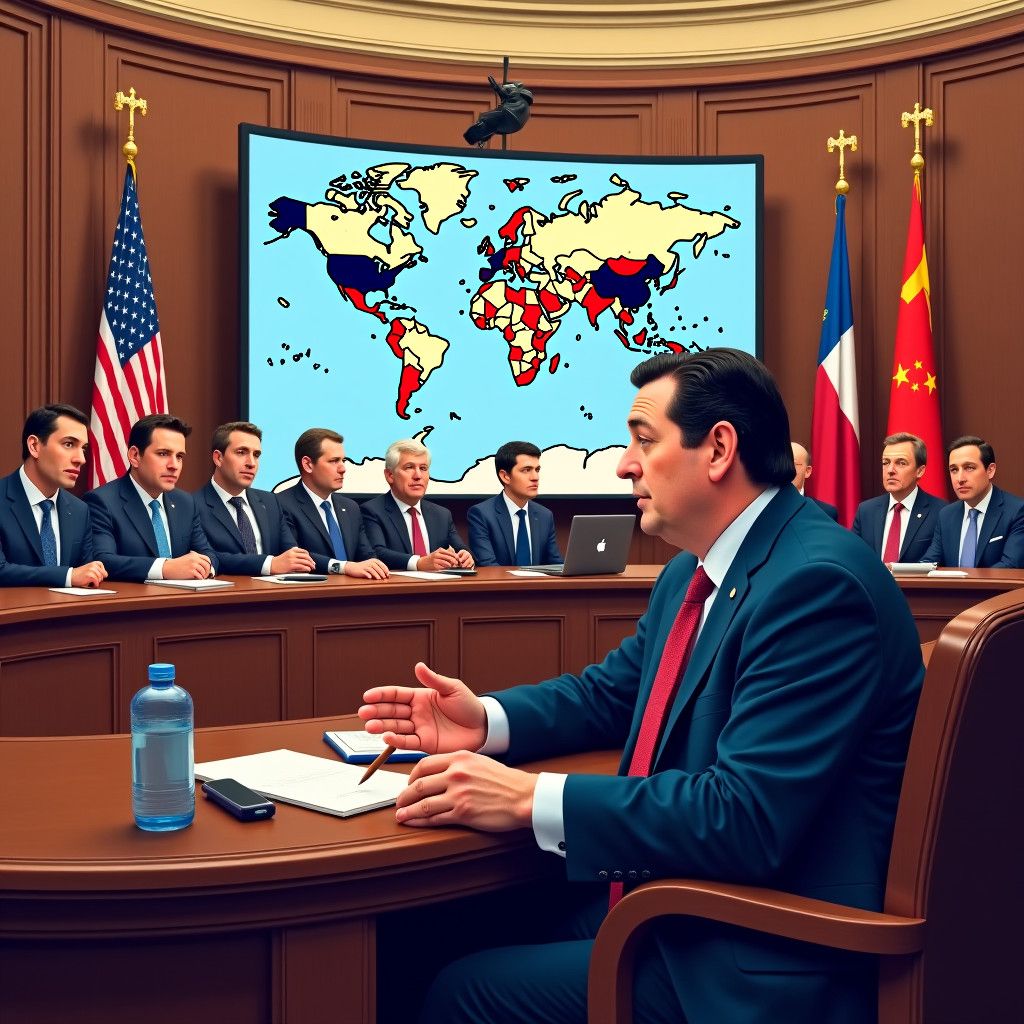Concerns over foreign influence in the development of artificial intelligence (AI) have emerged as a pressing issue in U.S. policy discussions. Leading this charge is Senator Ted Cruz, who recently raised significant questions regarding the intricate web of international cooperation in AI technology. His focus centers on whether these collaborations could potentially compromise U.S. national interests, thereby warranting a thorough investigation.
Senator Cruz’s apprehensions highlight a critical intersection between technology and geopolitics. The rapid advancement of AI has drawn keen interest from various nations, each eager to secure their place in the global AI race. Countries like China, for instance, have invested heavily in AI development, aiming to leapfrog their technological capabilities. This global competition raises valid concerns about whether foreign entities could exert undue influence on U.S. policies or even access sensitive information through cooperative partnerships.
During a recent session, Cruz articulated the need for a comprehensive evaluation of international AI partnerships, especially those involving key foreign players. He proposed an investigation into existing arrangements between U.S. entities and foreign nations, particularly focusing on compliance with ethical standards and national security regulations. The senator’s call to action underscores a broader concern among policymakers regarding the implications of foreign AI investments and collaborations.
Critics of Cruz’s position argue that international cooperation is essential for progress in AI. Joint research initiatives and shared knowledge can accelerate advancements that benefit society as a whole. For instance, collaborations between U.S. and European institutions have produced breakthroughs in machine learning and robotics that have global applications. However, the senator contends that such cooperation must be scrutinized closely to prevent potential security breaches or political manipulation.
Examples from the tech sector shed light on the complexities of foreign influence. In 2018, a high-profile case involving a U.S. tech firm and its Chinese counterpart raised eyebrows when it was revealed that sensitive intellectual property could have been compromised through their partnership. This incident served as a cautionary tale and has prompted calls for stricter guidelines to govern collaborations with foreign entities.
Furthermore, recent legislative initiatives aimed at regulating AI development reflect a growing recognition of the need for oversight. The National AI Initiative Act of 2020 was a step in this direction, establishing a framework for coordinating government efforts in AI. However, Cruz suggests that more stringent policies are necessary, encompassing aspects like transparency in international collaborations and rigorous vetting of foreign contributions.
The potential risks associated with foreign influence in AI extend beyond economic concerns. Issues of privacy, surveillance, and ethical standards come to the forefront when considering partnerships with nations that do not share the same values as the U.S. Technology, especially AI, can be a double-edged sword; it can enhance efficiency and innovation, but it can also be harnessed for nefarious purposes, including mass surveillance and the erosion of individual freedoms.
As discussions unfold, the bipartisan dimension of these concerns is evident. Both Republicans and Democrats are increasingly uniting in their calls for vigilance against foreign influence in technology. The push for a comprehensive strategy reflects a growing consensus that, while innovation is crucial, safeguarding national interests must not be sacrificed in the pursuit of technological progress.
Furthermore, Cruz’s advocacy for investigations into foreign influence aligns with a wider trend among U.S. lawmakers aiming to bolster national security in an era marked by rapid technological advances. As AI continues to evolve and shape industries, understanding the balance between collaboration and caution will be pivotal in crafting effective policy.
In conclusion, Senator Cruz’s inquiries into foreign influence on U.S. AI policy underscore a vital conversation about the delicate balance between innovation and security. As countries around the world race to harness the power of AI, maintaining vigilance in international collaborations will be imperative. The quest for progress should not overshadow the essential need to protect national interests and uphold ethical standards in technology.
AI’s future is undeniably international, yet the U.S. must ensure that its policies foster innovation while also safeguarding its core values.












